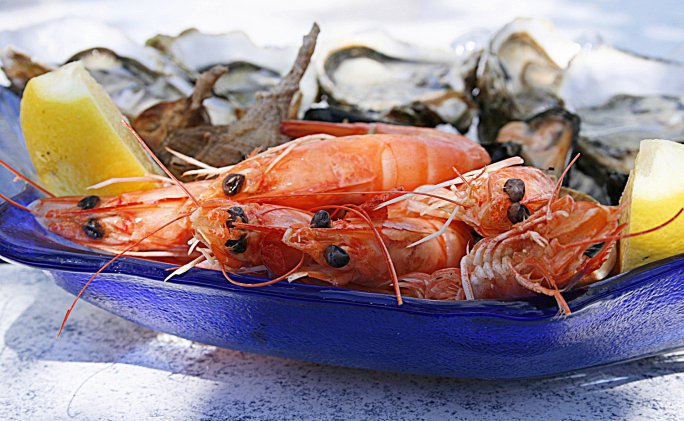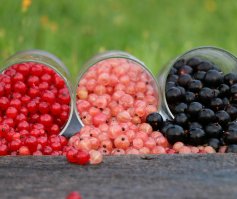More and more people have recently complained about hypothyroidism. This problem affects women to a large extent, as well as an increasing number of young people. The first symptoms are metabolic slowdown, weight gain and fatigue. Unfortunately, these symptoms are often underestimated or temporarily eliminated by means of coffee or slimming preparations.
Thyroidism - hypothyroidism? Most common symptoms
Below is a list of the most common symptoms of hypothyroidism:
- Feeling tired, excessive sleepiness and weakness
- Nail fragility and hair loss
- Dry skin, dandruff
- Eczemas on the neck and lower parts of the face
- After awakening low body temperature
- No cold tolerance
- Feeling cold in feet and hands
- Willingness to constipation, irregular visits to the toilet
- Weight
- Swelling, red eyes
- Irregular periods and PMS
- Painful and heavy periods, ovarian cysts
- Annoyance, bad sleep
- Reduction of immunity
- Problems with thinking and memory
Iodine and thyroid
Inactivity of the thyroid gland is very often caused by too little iodine in the body. According to the recommendations, the human body needs about 150 mcg of iodine to function properly. However, this is the absolute minimum. This is evidenced by the excellent health of the Japanese, who take daily doses of iodine in amounts much higher than recommended. However, we are in a much worse situation than the inhabitants of the country of cherry blossom, because we have completely different eating habits, and in recent years many elements and chemical compounds have appeared in our environment, which contribute to a systematic reduction in the amount of beneficial iodine.
The sun is salutary for us and our thyroid gland and is needed every day. Thanks to it, our body produces valuable vitamin D3. People who suffer from hypothyroidism and are overweight usually have a very low level of this vitamin. Vitamin D3 supports the work of the thyroid gland and protects against cancer. Already 15 minutes spent in the sun allows our body to produce a daily dose of vitamin D3.
Iodine is a specific propellant for our thyroid gland. It is also a completely natural antibiotic that cures many diseases. To supply your body with iodine, you can buy iodine at a pharmacy and lubricate your skin where it is thinnest. This will allow iodine to be absorbed through the skin. You should observe the place where you applied iodine and if the trace of iodine disappears quickly, it will mean that you have a significant deficiency of iodine. Iodine also contains the popular Lugola preparation, which is recommended for external use only. Its consumption should be consulted with a physician. Fish and seafood are also a good source of iodine. However, they should not be exaggerated with food, as they may also contain mercury, bromine and antibiotics. Iodine can also be found in yolk and cow's milk - the best origin of animals from natural breeding. Small quantities of this valuable element are also found in tomatoes, potatoes, bananas, strawberries and dried plums.

Healthy thyroid gland - what does it need?
Selenium is also a very important element in the process of iodine assimilation and proper thyroid function. Its best absorbed counterpart can be found in Brazil nuts and pumpkin seeds. It is worth consuming these products on a daily basis in order to provide our body with a daily dose of selenium. 1 Brazilian walnut contains about 50 mcg of selenium, and by eating 8 of them daily together with 2 tablespoons of pumpkin seeds we will provide our body with the amount of selenium needed.
The thyroid gland and diet
Magnesium also plays an important role in the process of iodine absorption and proper thyroid function. Unfortunately, many people are suffering from serious shortages. Magnesium is best absorbed into the body through the skin. To serve it this way, you can make homemade magnesium oil and use it every day. Vegetables with green leaves are also rich sources of magnesium. In addition, they contain significant amounts of chlorophyll. They are recommended to be eaten raw or cooked with sea salt, olive oil and a little lemon juice.
Our thyroid gland also needs vitamin C, which is rich in paprika, kiwi, citrus, acerola and rose. It is also worth adding L-ascorbic acid powder to juices and drinks.
Coconut oil is also a valuable addition to the thyroid gland, which supports its work. Consume about 1-3 tablespoons of this oil daily unrefined and cold-pressed.

Healthy thyroid gland - what to avoid?
When taking care of the condition of the thyroid gland, one should avoid highly processed carbohydrates, i.e. white bread, pasta, pizza or sweet snacks. They damage the thyroid glands and are unlikely to be of any benefit to our bodies. In addition to carbohydrates, we should also avoid chemicals. It is worth giving them up and dealing with cleanliness and tidiness at home with natural products such as soda and wine vinegar. The same applies to chemical cosmetics, which, when used every day, seriously harm our thyroid gland. It is best to resign from them or exchange them for natural cosmetics. You can also do it yourself at home, which will improve not only your health, but also your wallet.
















